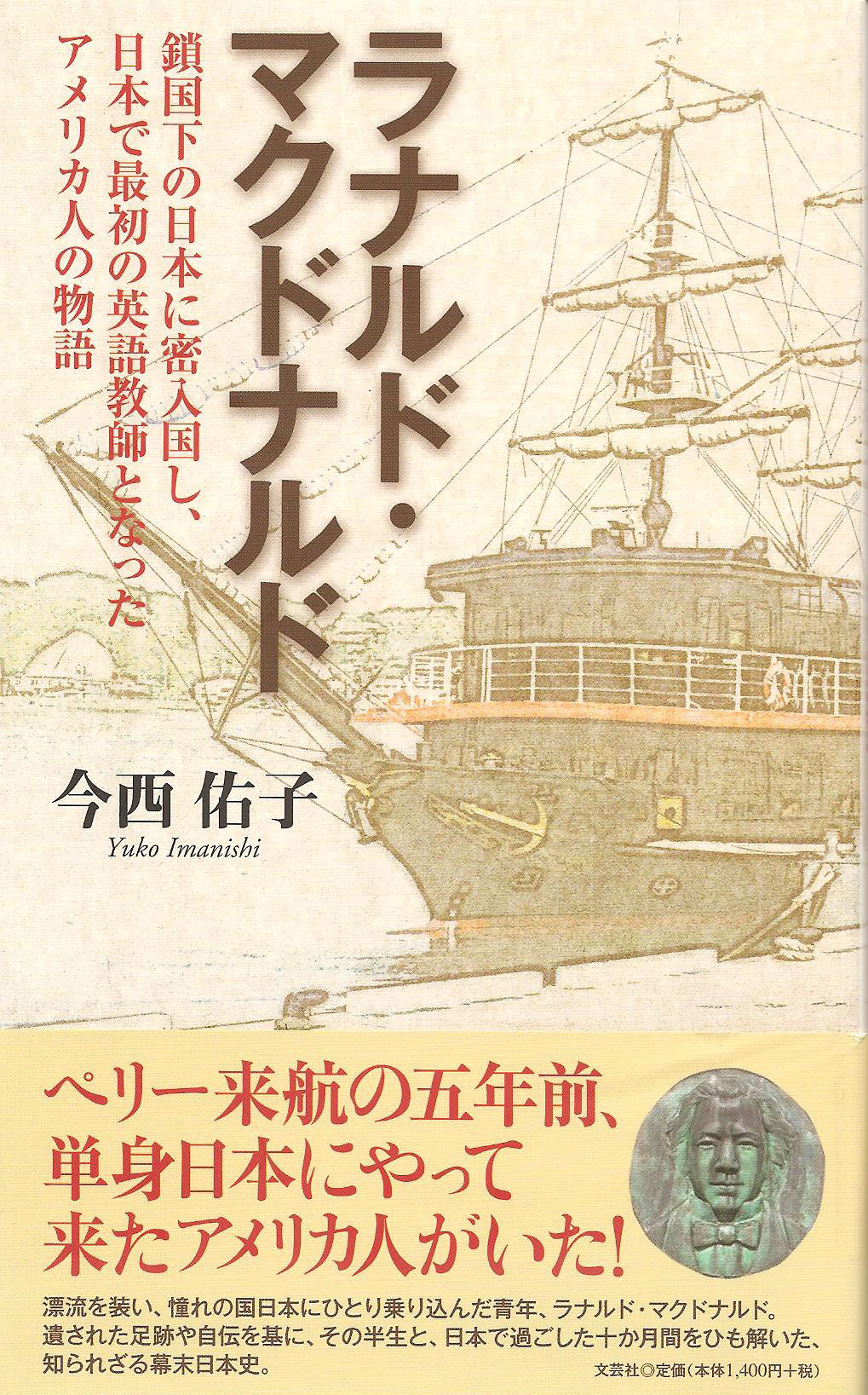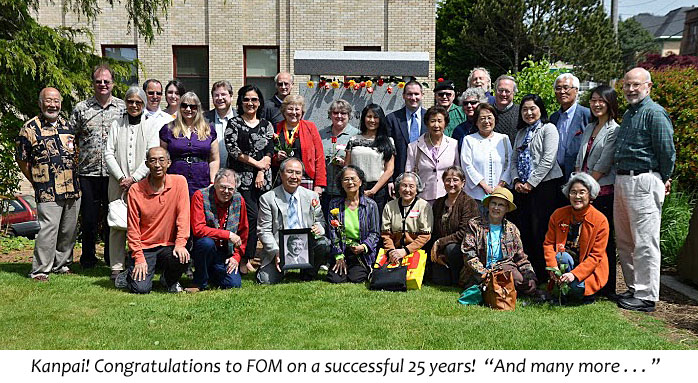New Book From Japan
Saturday, July 6th, 2013A new book entitled “Ranald・MacDonald” has been written by FOM International member and English teacher, Ms. Yuko Imanishi, who lives in the suburb of Nagoya, Japan. The book is being published by “Bungeisha Co., Inc.” with a release date of June 15, 2013 [the price is ¥1,400 plus tax].
The book is written in Japanese and 218 pages long and is described as the story of an American who entered Japan when the nation was closed to the outsiders and ended up being the first “native English-speaking” English teacher in Japan [5 years prior to Commodore Perry’s first visit to Japan in 1853.]
Ms. Imanishi came across the story of Ranald MacDonald in 2009 during a visit to her friend in Astoria, Oregon while on vacation in May of that year. Imanishi first saw the Ft. Astoria birthplace monument of MacDonald while taking a walk in this small town off the Pacific Ocean. It was quite an awakening for her when she read the inscribed words “the first English teacher in Japan”. An English teacher herself, Ms. Imanishi became intrigued; she studied and read many books about MacDonald, leading to a fascination with this remarkable American. MacDonald’s adventurous, fearless and forward-looking attitude – which was based on his belief that all people are basically the same – stimulated Imanishi’s imagination and her ‘need’ to write about him. MacDonald’s positive attitude and belief in people and his subsequent fearless endeavor in Japan was quite unusual – even unthinkable – under the iron fist of the Shogunate at that time. How incredible was MacDonald’s “story” and yet how little-known it remained! This realization fueled Imanishi’s desire to write a book that would enlighten more people in Japan about the extraordinary individual named Ranald MacDonald.
 名古屋市郊外在住の英語教師でマクドナルド友の会国際会員でもある今西佑子女史は、この度 ラナルド・マクドナルドと題する本を書き上げ、来る6月15日に株式会社文芸社より初版第一刷発行の運びとなった。【価格(本体)1,400円+税】
名古屋市郊外在住の英語教師でマクドナルド友の会国際会員でもある今西佑子女史は、この度 ラナルド・マクドナルドと題する本を書き上げ、来る6月15日に株式会社文芸社より初版第一刷発行の運びとなった。【価格(本体)1,400円+税】
日本語で書かれた218ページに及ぶこの本は、“鎖国下の日本に密入国し、日本で最初の(ネイティブ)英語教師となったアメリカ人の物語”と、解説されている。 更に、帯表紙には、「ペリー来航の五年前、単身日本にやって来たアメリカ人がいた!」とある。
今西女史は2009年5月の連休に友人を訪ね初めてオレゴン州アストリアを訪れた際、ラナルド・マクドナルドの物語に出会った。 太平洋に面した田舎町アストリアを散策中、史跡フォート・アストリアで“マクドナルド生誕の地”と書かれた記念碑に出くわし、更に「日本で最初の英語教師」と日本語で刻まれて居る文字を読み驚きを覚えた。 彼女自身英語教師でもあった事から興味をそそがれ、マクドナルドに関する本を読み、研究するに従い、この偉大なるアメリカ人の虜になった。 マクドナルドの冒険心と恐れを知らない、基本的に人間は皆同じ・・・との信念に基ずく前向きな態度に心を打たれた今西女史は想像力を掻き立てられ、彼に関して本を書く必要性に迫られた。マクドナルドの前向きな姿勢と人間への信条、恐れを知らない日本での行動は異常・・・と言うか、当時の鉄拳将軍の時代には到底考えられない事であった。 しかし、このマクドナルドの信じ難い“物語”はごく限られた人にしか知られて居ないのも現実である!この事に業を煮やした今西女史は、より多くの日本人にラナルド・マクドナルドなる偉大なる人物をもっと知り理解してもらいたいとの啓発心から、本書執筆に踏み切ったのであった。








